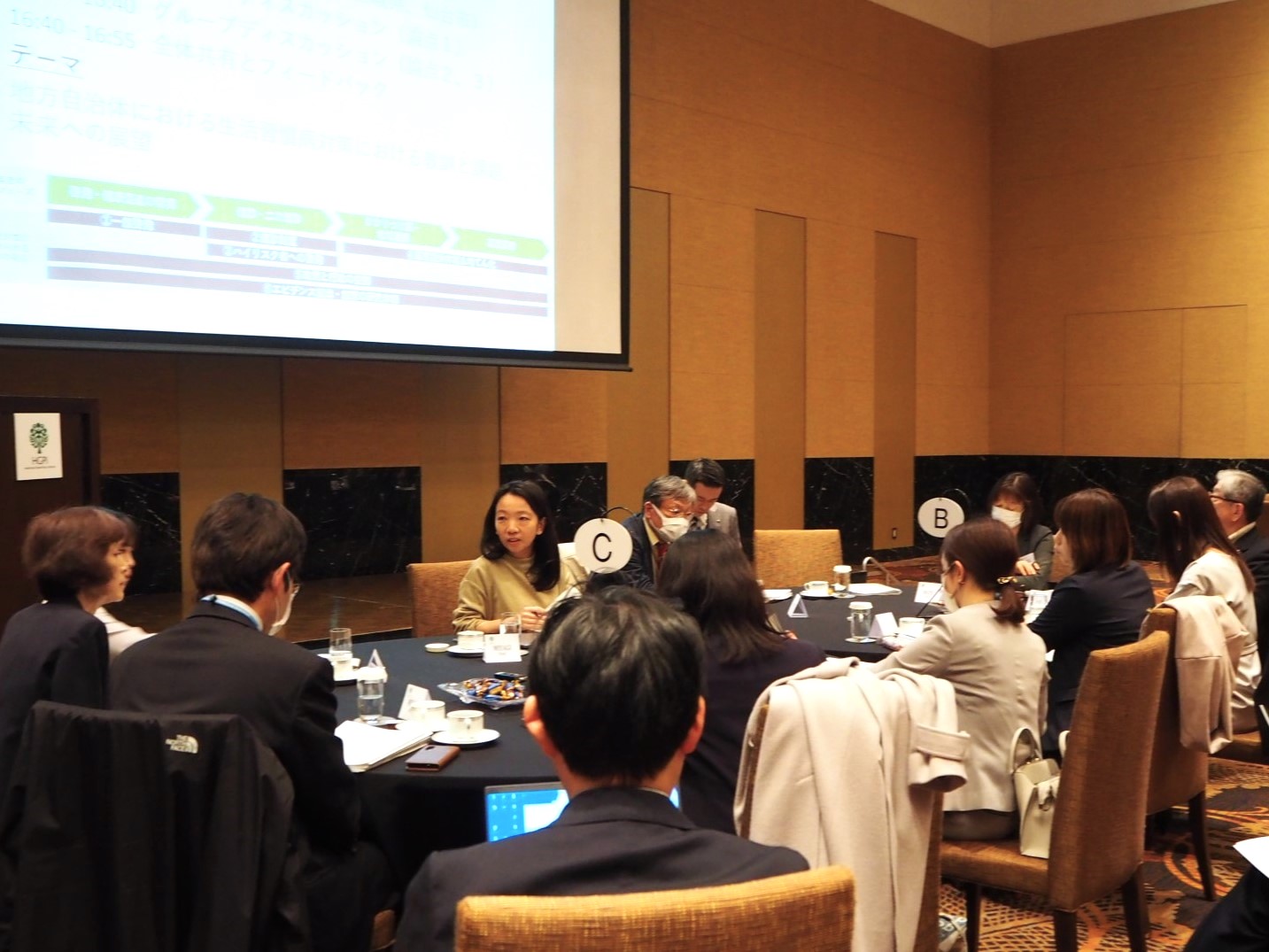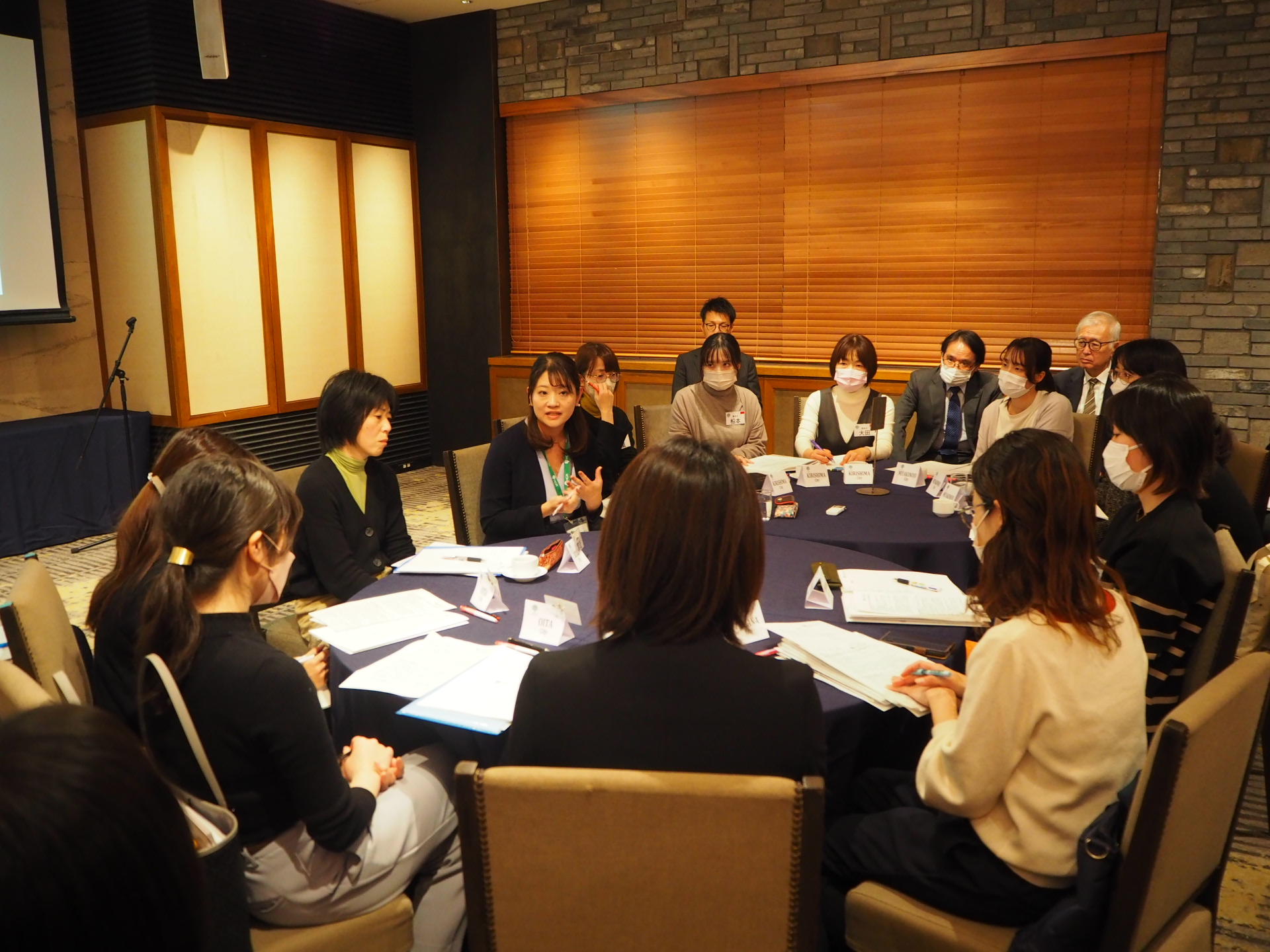[Discussion Points] NCDs-related Cross-project “Lessons and Challenges Drawn from NCDs Responses in Local Governments and Future Visions” (June 17, 2024)
date : 8/19/2024
Tags: Cardiovascular Diseases, Kidney Disease, NCDs, Obesity
![[Discussion Points] NCDs-related Cross-project “Lessons and Challenges Drawn from NCDs Responses in Local Governments and Future Visions” (June 17, 2024)](https://hgpi.org/en/wp-content/uploads/sites/2/HGPI-_20240614_eyechatch-NCDs-related-cross-projects.jpg)
The English version of the report has been published. (August 19, 2024)
Health and Global Policy Institute (HGPI) formulated “Lessons and Challenges Drawn from NCDs Responses in Local Governments and Future Visions.”
HGPI held the meeting ”The 1st NCDs Meeting in Kyushu” on December 7th 2023 and “The 2nd Meeting on Non-Communicable Diseases (NCDs) in Hokkaido and Tohoku” on March 15th 2024.
This meeting aimed at enhancing the understanding of NCDs, which require intervention and management across sectors in the community and workplaces. The meeting also discussed how NCDs measures should be tailored to local conditions and characteristics, as well as to promote the horizontal development of policies across the community.
HGPI has crystallized the discussion points related to topics that were discussed by participants on these meeting as well as their future prospects.
Discussion point 1: Cardio-renal-metabolic conditions, obesity, and related risk factors can be viewed as interrelated conditions. Rather than advancing regional control measures that target individual conditions, it will be necessary to establish systems using a more integrated approach that spans prevention and treatment to rehabilitation.
Discussion point 2: To improve uptake for routine and specific medical checkups, adopt methods of recommending checkups and providing explanations that reflect the circumstances of the people receiving them.
Discussion point 3: To encourage people whose checkup results require follow-up or more detailed testing to visit health institutions for secondary examinations, it will be important to have conversations that are in line with their lifestyles as well as to eliminate obstacles to medical examinations.
Discussion point 4: To ensure follow-up examinations provided after medical checkups are of high quality, and to enable family doctors to be able to provide referrals to and collaborate with specialists at the right times, it will be necessary to standardize care, to disseminate diagnostic and referral criteria, and to establish networks that facilitate healthcare collaboration.
Discussion point 5: The uneven geographical distribution of specialists results in cases where the windows for early detection are missed, so access to specialists should be improved through healthcare digital transformation (DX).
Discussion point 6: Measures for lifestyle disease control should include measures to reinforce the capacities of prefectural and municipal officials and to promote collaboration among them.
Discussion point 7: In each municipality, public health centers play key roles in cross-cutting collaboration that spans multiple diseases, and their functions should be reinforced.
Discussion point 8: Ensuring smooth collaboration among public health centers, prefectural governments, and municipal governments will be important. Doing so will require establishing systems for collaboration that are centered on public health centers and that involve stakeholders in the region.
Discussion point 9: In addition to measures limited to the public sector, there are examples in which cooperating with the private sector enhanced measures for lifestyle diseases. Cooperation among industry, Government, and academia is important.
Discussion point 10: Expectations are high for a population approach taken through stronger collaboration between community health and occupational health.
Discussion point 11: Obesity control is becoming more important for preventing the exacerbation of other diseases, but obesity measures at the municipal level are generally limited to metabolic syndrome. Obesity awareness must be expanded.
Discussion point 12: A system must be established that allows people to access the right treatment and support that is suited to the policy stage for each disease. Systems for intra-regional collaboration that are designed in a manner that they cut across diseases should also be established.
Discussion point 13: Lifestyle disease control requires collaboration that involves various stakeholders, that encompasses a life course perspective, and that takes aspects related to socioeconomics and welfare into account.
For details, please see the PDF linked below.
Top Research & Recommendations Posts
- [Policy Recommendations] The Path to a Sustainable Healthcare System: Three Key Objectives for Public Deliberation (January 22, 2026)
- [Research Report] The 2025 Public Opinion Survey on Healthcare in Japan (March 17, 2025)
- [Research Report] Perceptions, Knowledge, Actions and Perspectives of Healthcare Organizations in Japan in Relation to Climate Change and Health: A Cross-Sectional Study (November 13, 2025)
- [Policy Recommendations] Reshaping Japan’s Immunization Policy for Life Course Coverage and Vaccine Equity: Challenges and Prospects for an Era of Prevention and Health Promotion (April 25, 2025)
- [Research Report] The 2023 Public Opinion Survey on Satisfaction in Healthcare in Japan and Healthcare Applications of Generative AI (January 11, 2024)
- [Policy Recommendations] Developing a National Health and Climate Strategy for Japan (June 26, 2024)
- [Public Comment Submission] “Assessment Report on Climate Change Impacts in Japan (Draft Overview)” (December 24, 2025)
- [Policy Recommendations] Achieving Equity in Multidisciplinary Pain Treatment and Support Systems for Pain Management (March 31, 2023)
- [Research Report] Survey of Japanese Physicians Regarding Climate Change and Health (December 3, 2023)
- [Research Report] The Public Opinion Survey on Child-Rearing in Modern Japan (Final Report) (March 4, 2022)
Featured Posts
-
2026-01-09
[Registration Open] (Hybrid Format) Dementia Project FY2025 Initiative Concluding Symposium “The Future of Dementia Policy Surrounding Families and Others Who Care for People with Dementia” (March 9, 2026)
![[Registration Open] (Hybrid Format) Dementia Project FY2025 Initiative Concluding Symposium “The Future of Dementia Policy Surrounding Families and Others Who Care for People with Dementia” (March 9, 2026)](https://hgpi.org/en/wp-content/uploads/sites/2/dementia-20260309-top.png)
-
2026-02-05
[Registration Open] (Webinar) The 141st HGPI Seminar “Current Status and Future Prospects of Korea’s Obesity Policy: Voices of People with Lived Experience in Policy Promotion” (March 3, 2026)
![[Registration Open] (Webinar) The 141st HGPI Seminar “Current Status and Future Prospects of Korea’s Obesity Policy: Voices of People with Lived Experience in Policy Promotion” (March 3, 2026)](https://hgpi.org/en/wp-content/uploads/sites/2/hs141-top-1.png)
-
2026-02-06
[Research Report] AMR Policy Update #5: Cancer Care and AMR (Part 2)
![[Research Report] AMR Policy Update #5: Cancer Care and AMR (Part 2)](https://hgpi.org/en/wp-content/uploads/sites/2/HGPI_20260204_AMR-Policy-Update-5.png)






